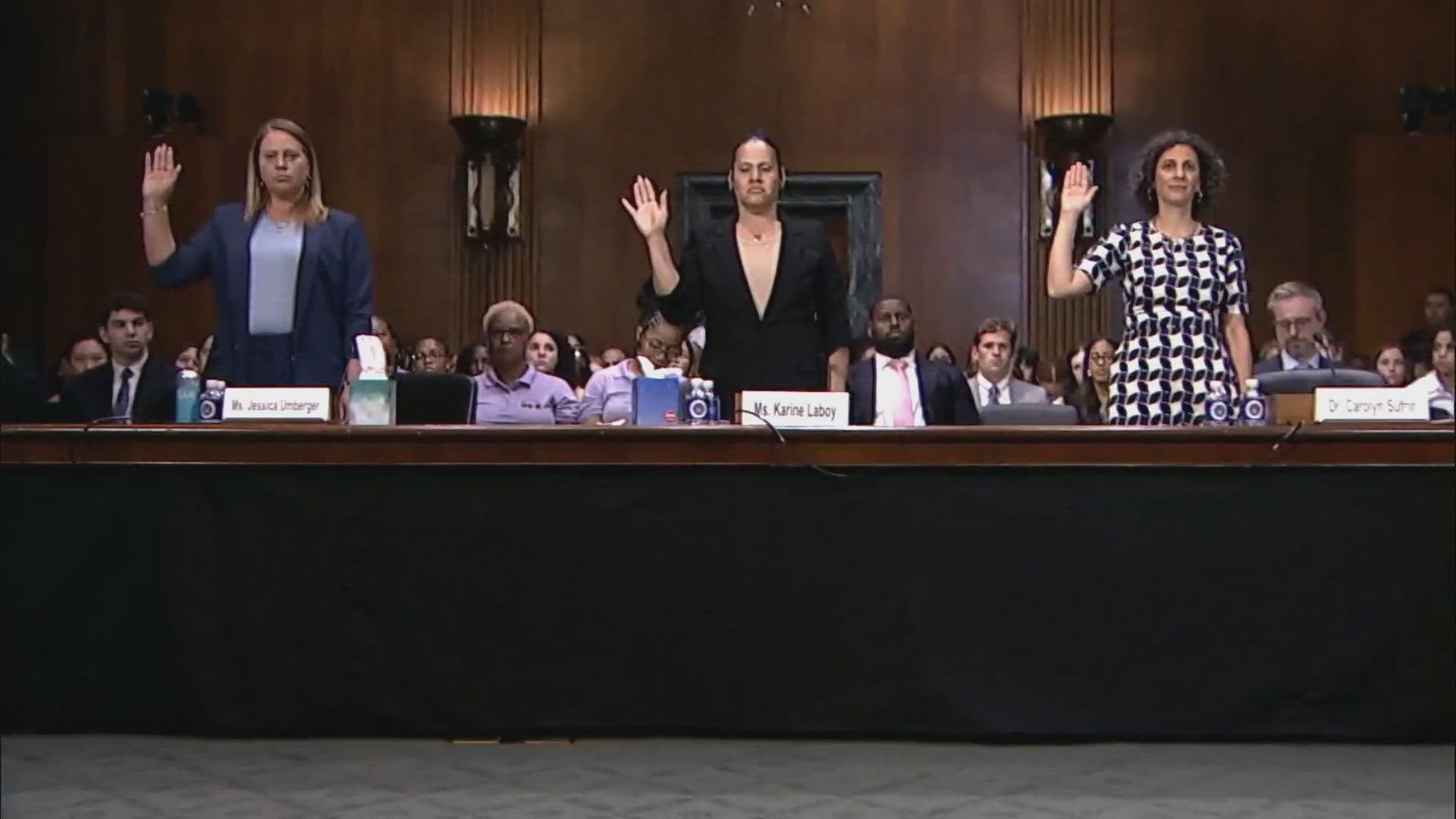JACKSONVILLE, Fla. — They are behind bars for crimes they committed, but what about their unborn child? Wednesday afternoon a Senate subcommittee on human rights heard testimony from a formerly incarcerated woman who gave birth while in prison.
The subcommittee is chaired by Georgia Senator Jon Ossoff and according to the senator, an investigation uncovered more than 200 instances of abuses against pregnant inmates across the country over the last 6 years.
His goal is to reform the prison system to prevent trauma against women and their unborn children. Ossoff said more than 100 people were interviewed for the investigation intro treatment of pregnant inmates.
"In all cases we reviewed, these women repeatedly begged for help," he said.
Three women testified on Capitol Hill about their experience with pregnancy in prison including a woman from Georgia named Jessica "Drew" Umberger, who gave birth in 2018 at the beginning of her 5 year prison sentence.
"It is my strong belief that the prison staff wanted me to have a c-section to fit into their prison transport schedule," said Umberger, who was released from prison in 2022.
Umberger said she was put into solitary confinement for 3 weeks when her baby was just 5 days old.
"I could see the feet of people walking by the window of my cage and wondered if they knew anything was going on," she said.
According to the organization Advocacy and Research on Reproductive Wellness of Incarcerated People, 41 states, including Georgia and Florida, have laws restricting the shackling of pregnant inmates. However, Georgia and Florida do allow for pregnant inmates to be shackled during prison transportation.
"When a woman is giving birth, even though the paper says she's an incarcerated woman, morally know that she is a mother, she is a sister, she is a daughter and should be treated as such," Umberger said.
First Coast News reached out to the Georgia Department of Corrections about Umberger's claims but did not receive a response by the time this article was posted.
According to the Georgia Department of Corrections website, Inmates' Constitutional Rights include: "Access to care must be provided for any condition, be it medical, dental or psychological, if the denial of care might result in pain, suffering, deterioration or degeneration."
But Umberger said that her treatment while pregnant during her incarceration will leave a lasting negative impact on her family.
"I did my time, but my children and I will never fully be finished with my sentence," Umberger said.
Wednesday afternoon the subcommittee also heard testimony from a doctor stating that a nationwide policy and set of standards should be created to ensure pregnant inmates receive the medical care they need.
"In jails across this country, with taxpayer dollars," Ossoff said after listening to the testimony Wednesday afternoon, "makes you think about how the united states goes around the world lecturing other nations on human rights."
The senators on the subcommittee plan to meet again with members of different departments of corrections to craft future legislation.

